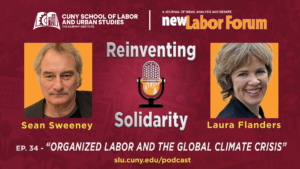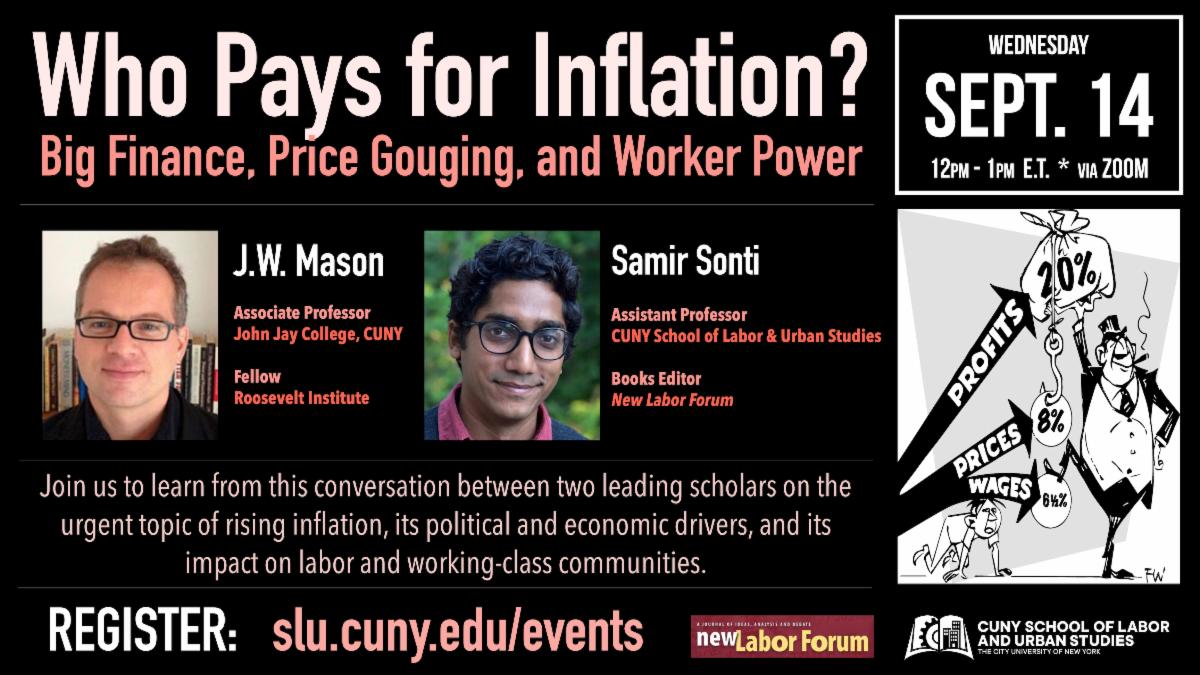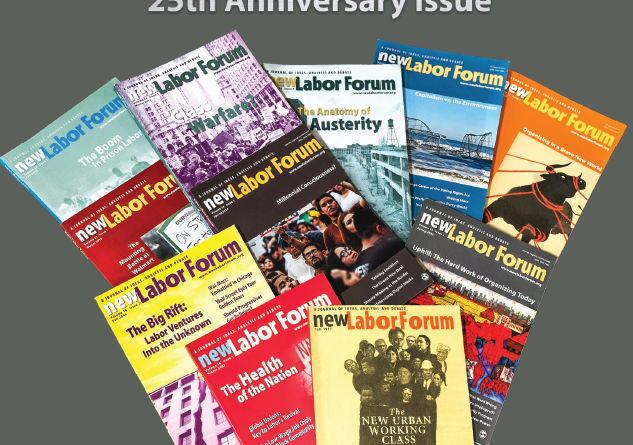Organized Labor and the Global Climate Crisis

NLF Highlights for Labor Day
Table of Contents
- Leaping Backwards: Why is Energy Poverty Rising in Africa? /Sean Sweeney, New Labor Forum
- Reinventing Solidarity Episode 34: “Organized Labor and the Global Climate Crisis”
- “Who Pays for Inflation: Big Finance, Price Gouging, and Worker Power,” Wednesday, September 14, 2022, 12pm – CUNY SLU Virtual Event
- “The Worker-Led Upsurge: Amazon and Starbucks,” Friday, September 23, 2022, 12pm – CUNY SLU Event
- “25th Anniversary Celebration for New Labor Forum,” Friday, October 21, 2022, 2pm – CUNY SLU Event
Leaping Backwards: Why is Energy Poverty Rising in Africa?
By Sean Sweeney, New Labor Forum
How can the world end energy poverty in the Global South and simultaneously reduce greenhouse gas emissions to fight climate change? In 2021, 860 million people had no access to electricity. Today, a third of all humanity lacks access to reliable power. Roughly 2.6 billion people heat their homes with polluting fuels and technologies, and using traditional stoves fueled by charcoal, coal, crop waste, dung, kerosene, and wood. The majority of families in the Global South are today able to turn on an electric light—and therefore have “access to electricity” for at least some hours in the day—but for many that is as far as it goes. For other basic needs, dirty and perhaps life-threatening energy continues to be the norm . . .
Read the full article here

Sean Sweeney, Director of SLU’s Trade Unions for Energy Democracy, speaks with journalist Laura Flanders about continued botched efforts by countries around the globe to meet the targets set forth in 2015 Paris Agreement. Pointing to worldwide policies that depend upon private investment, he describes why the profit motive has failed to deliver renewable energy at scale, affordably, or with the urgency demanded by the climate crisis. Much more promising, he suggests, is the Global Public Goods approach increasingly advanced by international unions and their allies.
Listen here: SLU.CUNY.EDU/PODCAST






